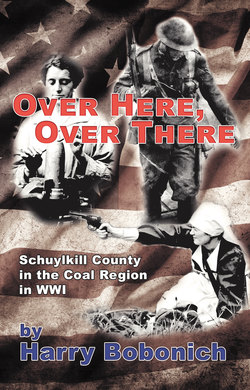Читать книгу Over Here and Over There - Harry Bobonich - Страница 34
На сайте Литреса книга снята с продажи.
The Home Front: 1915
ОглавлениеThe war in Europe has been going on for one and one-half years. While the economy in the United States has improved substantially, we had not changed our mind appreciably about entering the war.
On July 14, 1915, Michael Corday was celebrating Bastille Day in Paris. He wrote in his diary: “Silent crowds of people . . . the regiments march past with their bands; remember that all these men are on their way to the slaughter.”
U.S. Delegation to the International Congress of Women Permanent Peace. The Hague 1915.
America—ever steadfast—still did not want any part of the carnage going on in Europe. Alfred Bryan was a newspaper reporter who then chose to become a lyricist. In 1915, he wrote, “I didn’t Raise My Son to Be a Soldier,” (a mother’s plea for peace) which was the most popular song in the country at that time. The last stanza reads:
Let nations arbitrate their future troubles,
It’s time to lay the sword and gun away.
There’d be no war today,
If mothers all would say,
“I didn’t raise my boy to be a Soldier.”
President Theodore Roosevelt, as expected and an advocate of military power, was sharply critical of the song. According to Author Michael S. Neiberg, Roosevelt said that if someone liked the song they would also like a song called, “I Didn’t Raise My Girl to Be a Mother.” The former President then said that women who praised the song should live “in a harem, not in the United States.”
The silent film, The Birth of a Nation, popularized many anti-black caricatures. It was well received across the nation, including the White House itself. The explicit racist film sparked the revival of the Ku Klux Klan, and racism was still prevalent throughout the land. Neiberg, in his compelling book The Path to War, wrote:
Wilson had recently resegregated the federal civil service and had named Josephus Daniels as his secretary of the navy despite Daniel’s open endorsement of white supremacy. Postmaster General Albert S. Burleson, who led the movement to resegregate the civil service, also had outspoken white supremacist views, as did Treasury Secretary (and Wilson son-in-law) William Gibbs McAdoo. (Neiberg 2016)
As the war progressed, our trade with the Allies increased considerably and our economy improved. The developing “one-sided” trade with the British was contrary to Wilson’s strict policy of neutrality. There were those, though, who felt that it was an opportunity for the United States to become a leading financial and industrial force.
By this time, the British Navy had already blocked off trade headed for German ports. Germany then proceeded to use their submarine fleet to attack Allied and neutral shipping in order to cut off supplies and military aid to Britain. The German U-boats also now began to be a threat to America.
The war in Europe remained a world away until the tragic sinking of the Lusitania in May, including the loss of 123 American lives, triggered anti-German sentiment across the country. Nevertheless, President Wilson reacted cautiously and held firm: he stated that the United States would not enter the war.
By the end of the year, the German armies had a continuous record of victories on the Eastern Front. It has been estimated that up to 10 million refugees were on the move in that sector: and both sides outrageously showed no mercy for civilians.
